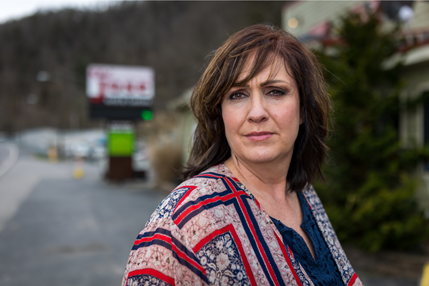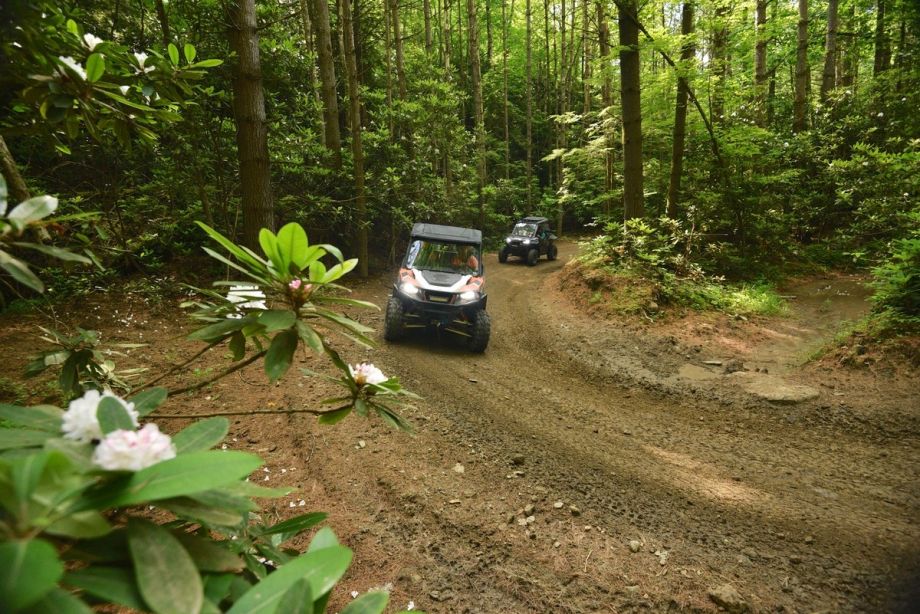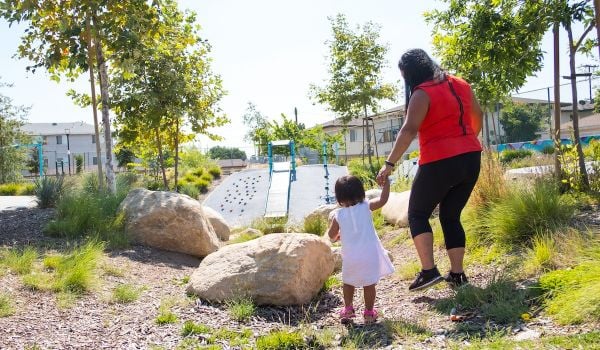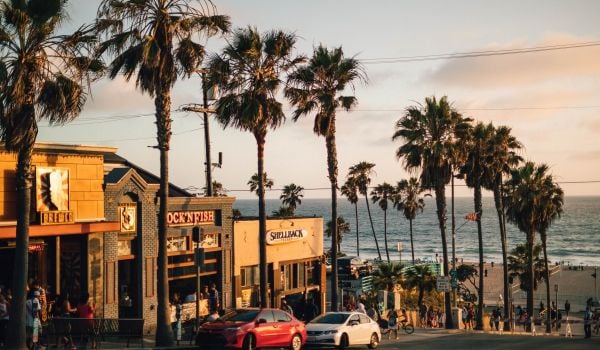Jill Hendrick is no stranger to thriving in the mountains. The Pineville, West Virginia, entrepreneur has deep ties to the community and sharp business acumen runs in the family. Her grandmother ran a flower shop and owned several properties in Wyoming County, a rarity for a woman during the late 1940s, when some places still required a male signer for a woman to even receive a loan. But despite this forward progression, there was a dark cloud that hung over the small mountain town at one point.

Jill Hendrick
(Photo courtesty Jill Hendrick)
The area experienced a resurgence of activity with its local link to the Hatfield-McCoy trail system, an 800-mile network of professionally maintained ATV trails crisscrossing the southern West Virginia mountains. The trails bring tens of thousands of visitors to the region annually — and 2020 was no different, with the outdoors being one of the safest places for recreating during the pandemic.
“The Hatfield-McCoy trail system embraces the mountains,” Hendrick says. “People don’t seem to mind driving the windy twisting roads to get here. I think they love the mountains more than we do.”
The CDFI Natural Capital Investment Fund (NCIF) and Cornersquare Capital have helped the quintessential coal-mining mountain town transition to a tourism economy and revive its economic strength after the coal energy bust. Justin White was the loan officer who worked with Hendrick and the Pineville effort, and says NCIF aims to diversify coal-impacted communities in Southern West Virginia.
“There is no better example of this diversification than the Hatfield-McCoy Trails,” White says. “The large majority of visitors and permit sales to the trails are non-West Virginia residents, which has created tremendous opportunity for new investments in lodging and other trail-related businesses.”
This enables NCIF to provide access to capital and technical assistance to people like Hendrick. Tourism-related projects in Southern West Virginia carry risks, but NCIF works with local banks and economic development partners to ensure viable projects get the shot they deserve.
“When you live and work in Southern WV, there are many challenges for growth,” Hendrick says. “The beauty of this area is the mountains. The negative is also the mountains. Expansion and growth are very difficult. Roads take 10 times longer and are more expensive to build — infrastructure is more difficult.”
She opened a restaurant called Ole Jose 10 years ago and had hit-and-miss business from tourists. She was resistant to getting into lodging, but when a property came on the market only a 5-8 minute ride from the trails and with plenty of parking, she took the leap. The decision paid off. She converted an existing rental and bought another the year after, and more riders came, not just for a 4-5 month season, but about 9 months out of the year.
“When I purchased the property NCIF financed, I could see the need for a large-scale expansion,” she says. “This property gave me that opportunity. Part of my project is lodging and the other part is housing for local families.”
The opportunity was made possible by a flexible loan process. “The purchase price plus renovations would have been out of reach for me if NCIF wasn’t committed to Southern WV and helping small businesses like myself,” she says. “Most banks would have wanted 10-20% down, and would not have allowed me to add renovation costs back into the loan. I found that to be very appealing so that I wasn’t overstretching my cash flow. … I truly believe we are in the infant stages of growth; the sky’s the limit.”
Hendrick’s instincts seem correct. In 2020, the Hatfield-McCoy Trail System sold close to 65,000 trail permits, which represented a 15% increase from 2019 and its highest number of trail permits ever sold.
White says COVID-19 caused fear and uncertainty for everyone, but with most economic downturns, underserved communities were hit the hardest. As a CDFI, NCIF’s focus was on supporting existing businesses and recognizing that customers would likely need deferments.
“I think everyone’s risk analysis mindset has changed due to COVID-19, lenders and non-lenders alike,” White says. “In difficult times, the best thing we can do is gravitate to our core mission and values. There is always uncertainty in lending, what we have to do is continue to seek out our community partners for knowledge and support. We must also continue to work with entrepreneurs like Jill Hendrick that have the character and determination to be successful.”
This story is part of our series, CDFI Futures, which explores the community development finance industry through the lenses of equity, public policy and inclusive community development. The series is generously supported by Partners for the Common Good. Sign up for PCG’s CapNexus newsletter at capnexus.org.
Hadassah Patterson has written for news outlets for more than a decade, contributing for seven years to local online news and with 15 years of experience in commercial copywriting. She currently covers politics, business, social justice, culture, food and wellness.
















